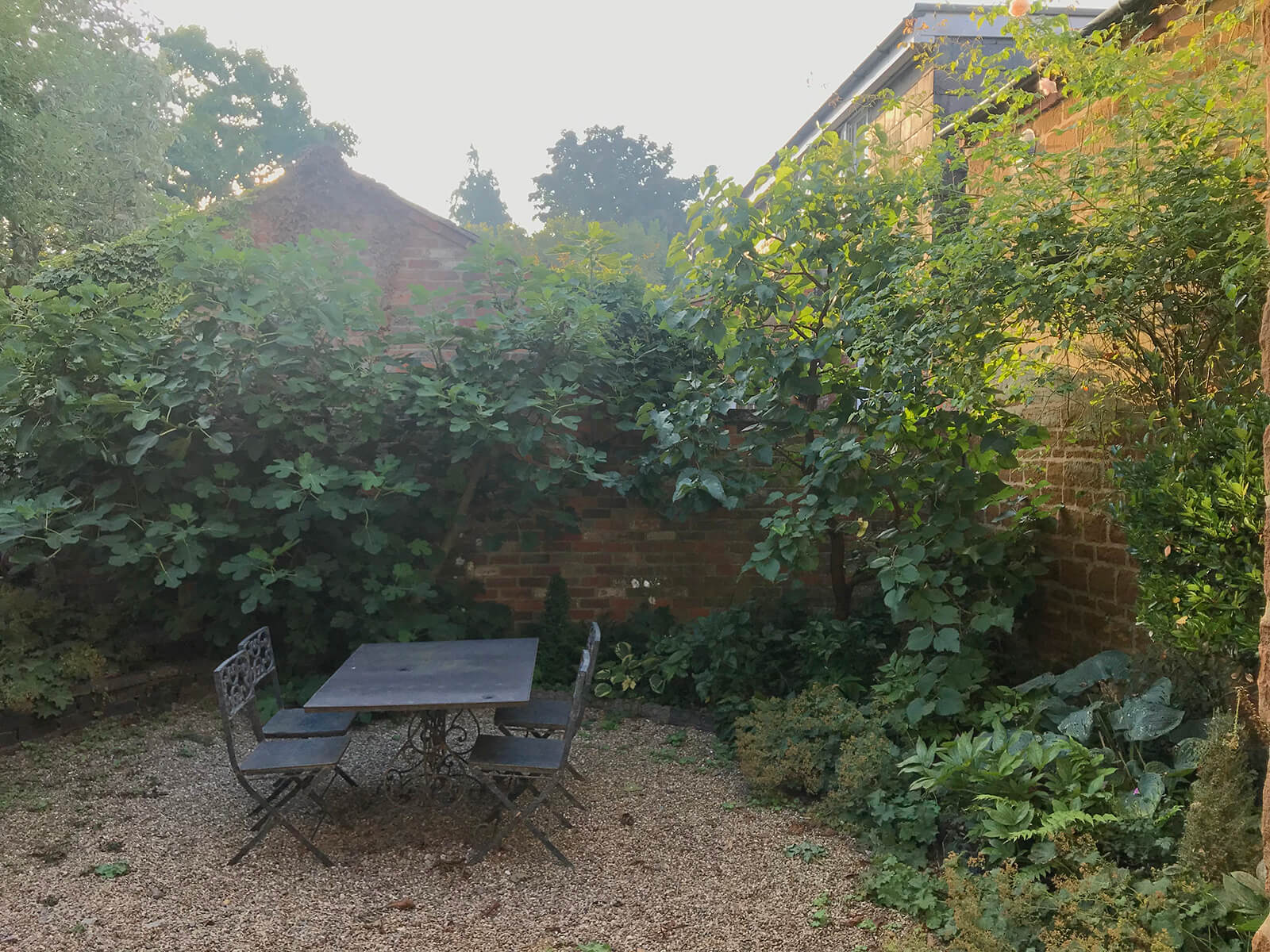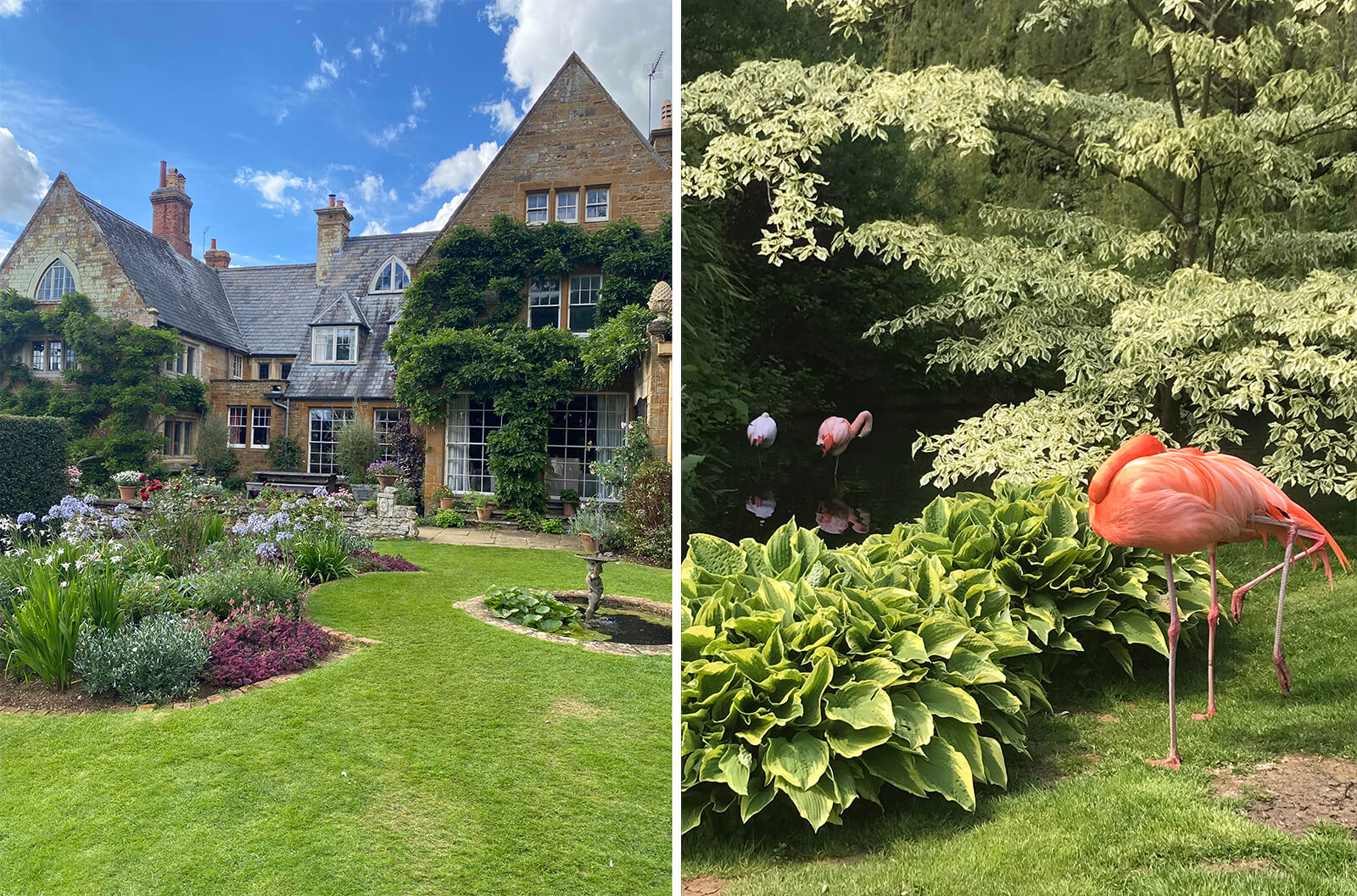UnBroken at Camden Inspire 2025 proffered salvaged stories and second lives in design
by Asmita SinghOct 04, 2025
•make your fridays matter with a well-read weekend
by Zohra KhanPublished on : Aug 16, 2024
"In the past, I suppose people have wanted to manicure their lawns and keep topiary. That still has its place in a garden, 100 per cent, but I think we have learnt the importance of allowing things just to be.”
– William Scholey
Gardens have always meant spaces of safety and warmth for horticulturalist and garden designer William Scholey. His childhood in the picturesque village of East Haddon in Northamptonshire was full of verdant adventures in the woodland, spent birdwatching and collecting wood lilies with friends. A more intimate relationship with gardens evolved as he built little habitats for birds in his mother’s garden and helped her in the polytunnel where she grew organic vegetables for selling in the village. Then many visits to the botanical garden of Coton Manor cemented the young boy’s love for the irresistible domestic wilderness of these biomes. Years before he graduated from Nottingham Trent University with a degree in Horticulture and Garden Design, Scholey worked as a gardener at a house in Brampton – an experience that taught him the maintenance essentials of a garden and how closely the pursuit of gardening is linked to the discipline of garden design. One sprightly sunny day in London, seated under the comforting shade of a glorious walnut tree, Scholey connected with me on Zoom to discuss the intimate art of garden design and his journey so far.


“When I finished secondary school, I found that I could do horticulture as a degree. I thought that would be ideal and it all just fell into place. I have friends who have jobs and they don’t know what they are doing; I find myself lucky to have found this out quite early in life,” he told STIR. For Scholey, a sense of place is paramount when it comes to gardens. Though enamoured by the beauty of historic gardens such as Coton Manor (Coton, England) and The Lost Gardens of Heligan (Cornwall, England), he believes their charm endures as they are perfect for where they are. He would never consider recreating any of these, for, “every garden is unique to its own space,” he remarked.
Exposed to the quintessential running of garden space and what makes it one’s haven from early on in life, Scholey took his learnings into making a career of his own. During his university days, he worked for a landscaper—an experience that he said “taught him the trade”; whereas an internship at the National Tropical Botanical Garden in Hawaii right after graduation forged the remaining confidence to start his practice. In 2019, he established Scholey Garden Design in London and his first project as an independent designer was located in East Haddon. It was a garden set in the prairie-style planting that he conceived taking inspiration from Dutch horticulture luminary Piet Oudolf’s illustrious works. “This was a really old house in Northamptonshire, a beautiful cottage. We used clay pavers to make a nice pathway and then planted all the sides. It’s a project I am very proud of and visit quite often,” he reminisces.
The key part of my process is that when I am building the gardens, I am able to make decisions whilst just observing.
For the British designer, the journey of building every garden follows an intimate process of ideation and construction. The history of the site is the first parameter that he considers while assessing a new project as it helps in picking the right materials and the variety of plants that he’d be using. He champions native species and drought-resistant plants, thereby pairing beauty with sustainability. Another important step is to retain the soil as it helps create diverse mounds that add up to developing the character of the place. “If you try to create a natural garden, it’s never going to be levelled. I create that atmosphere using stones, with existing materials on the site and by cutting cobbles up. Just using what’s already there is important to me,” he said, asserting the beauty of gardens that look wild and timeless. “New is not necessarily the answer. I want things to look settled and that they have been there for a long time.”
Decay is another key factor that is celebrated in the spaces he creates. Allowing gardens to just take precedence over continual manicuring and building topiary. “It’s really important leaving those seedheads on and leaving the dead upright flowerheads because that’s a place for an insect to hibernate. We are letting leaves just land and leaving them because they’ll decay and then help the soil,” he answered upon being asked the reason for his insistence on creating more wild gardens.
More in our conversation, Scholey discussed the importance of his availability on-site throughout the journey of a project, what separates the practice of garden design from landscape design and why observation and the idea of feeling "a garden as if it’s one’s own" is paramount to crafting unique spaces for his clients.
Tap on the cover video to watch the complete conversation.
by Chahna Tank Oct 15, 2025
Dutch ecological artist-designer and founder of Woven Studio speaks to STIR about the perceived impact of his work in an age of environmental crises and climate change.
by Bansari Paghdar Oct 14, 2025
In his solo show, the American artist and designer showcases handcrafted furniture, lighting and products made from salvaged leather, beeswax and sheepskin.
by Aarthi Mohan Oct 13, 2025
The edition—spotlighting the theme Past. Present. Possible.—hopes to turn the city into a living canvas for collaboration, discovery and reflection.
by Anushka Sharma Oct 11, 2025
The Italian design studio shares insights into their hybrid gallery-workshop, their fascination with fibreglass and the ritualistic forms of their objects.
 surprise me!
surprise me!
make your fridays matter
SUBSCRIBEEnter your details to sign in
Don’t have an account?
Sign upOr you can sign in with
a single account for all
STIR platforms
All your bookmarks will be available across all your devices.
Stay STIRred
Already have an account?
Sign inOr you can sign up with
Tap on things that interests you.
Select the Conversation Category you would like to watch
Please enter your details and click submit.
Enter the 6-digit code sent at
Verification link sent to check your inbox or spam folder to complete sign up process



by Zohra Khan | Published on : Aug 16, 2024
What do you think?